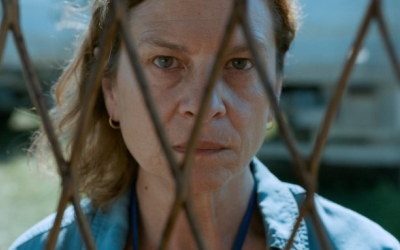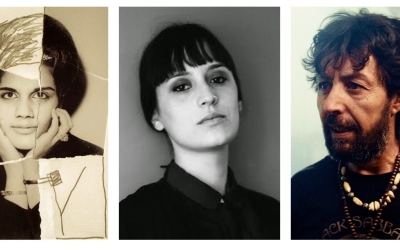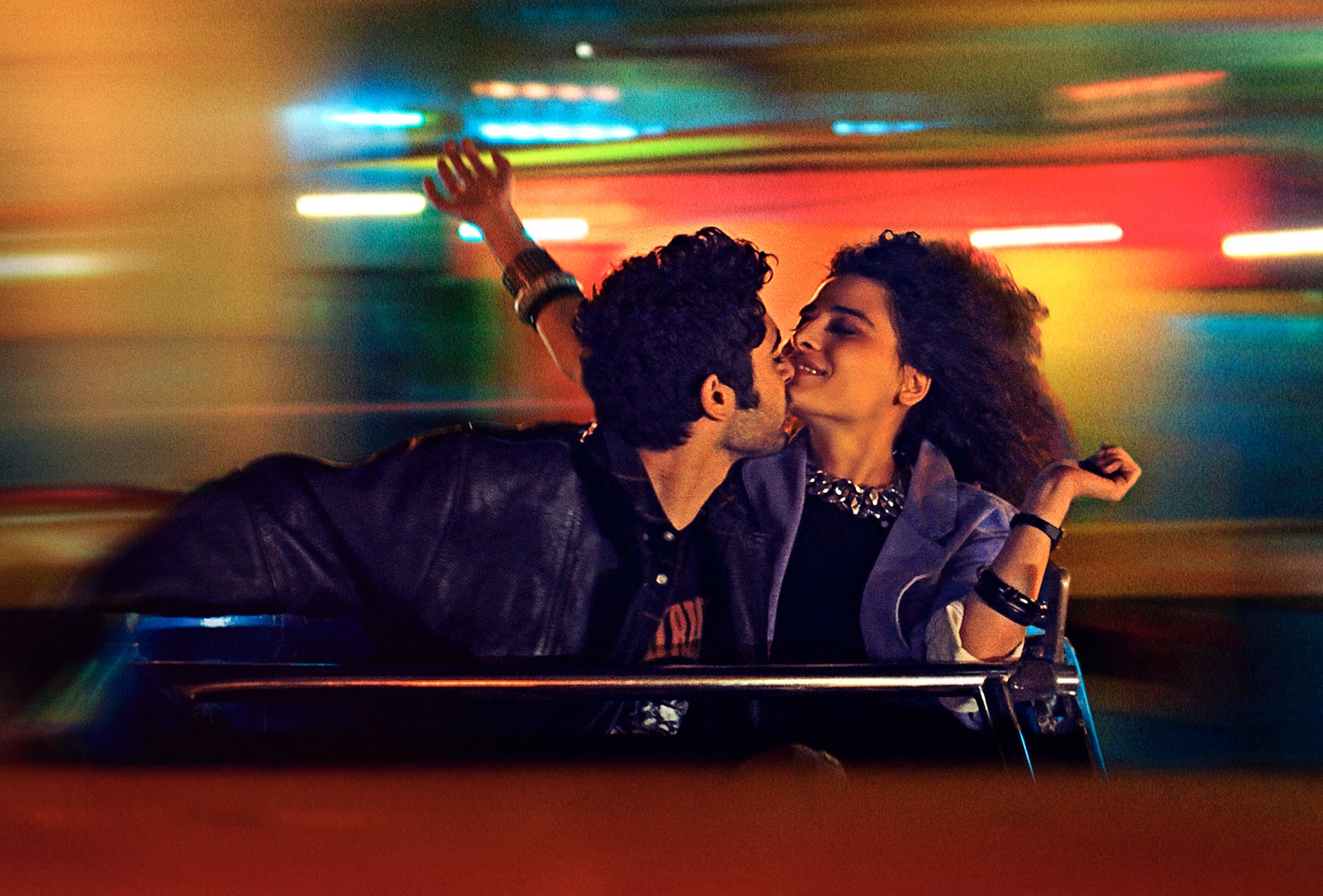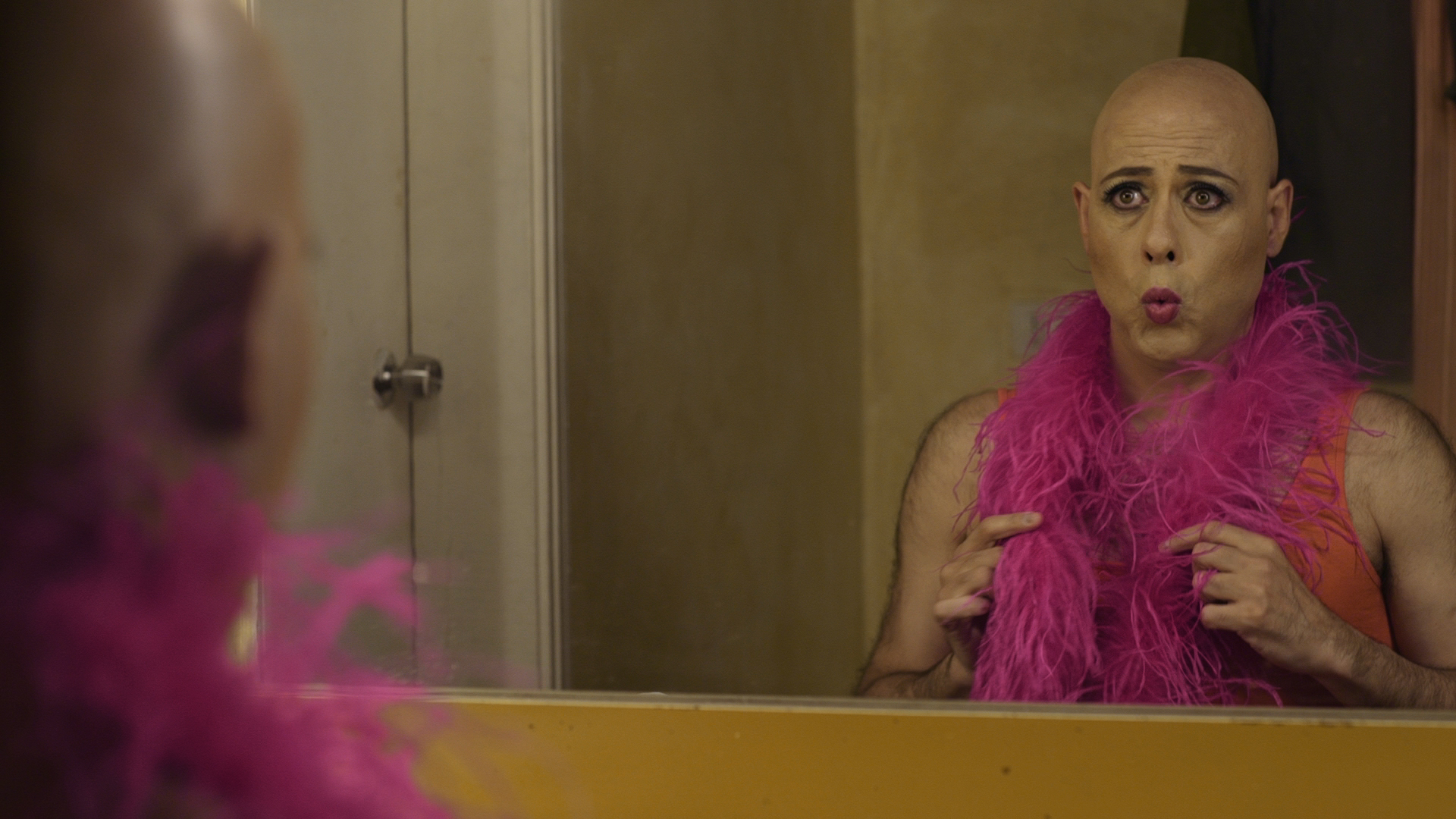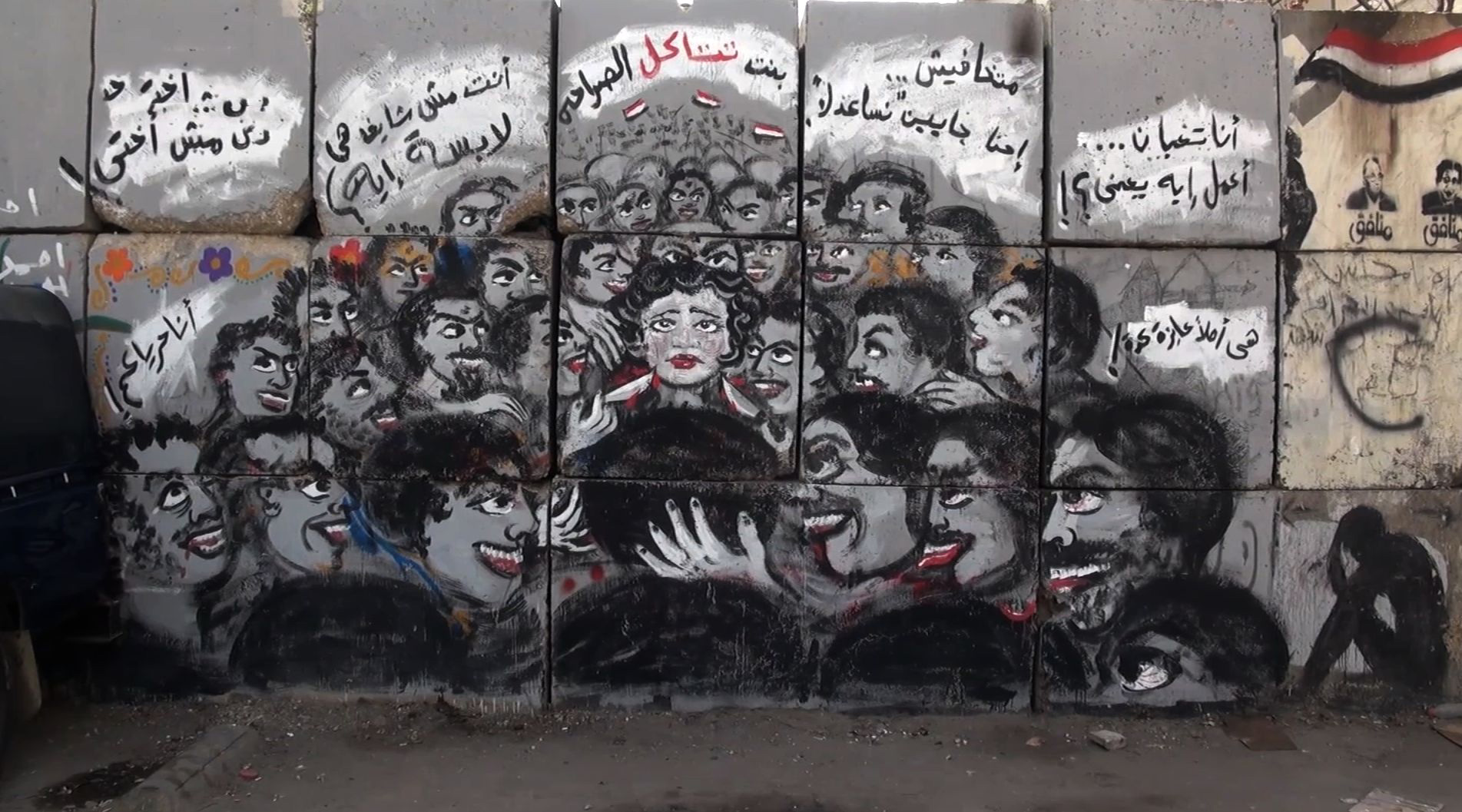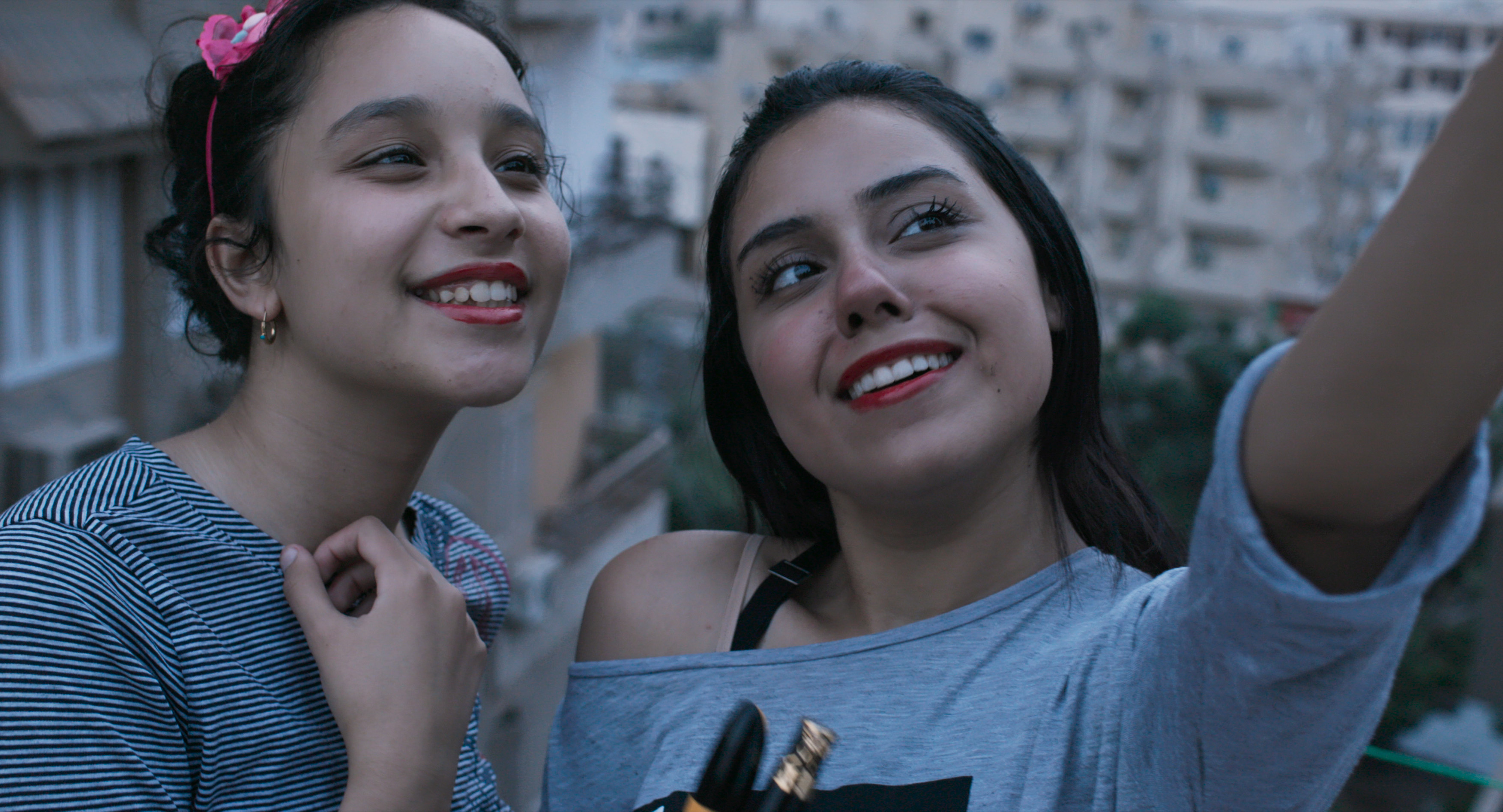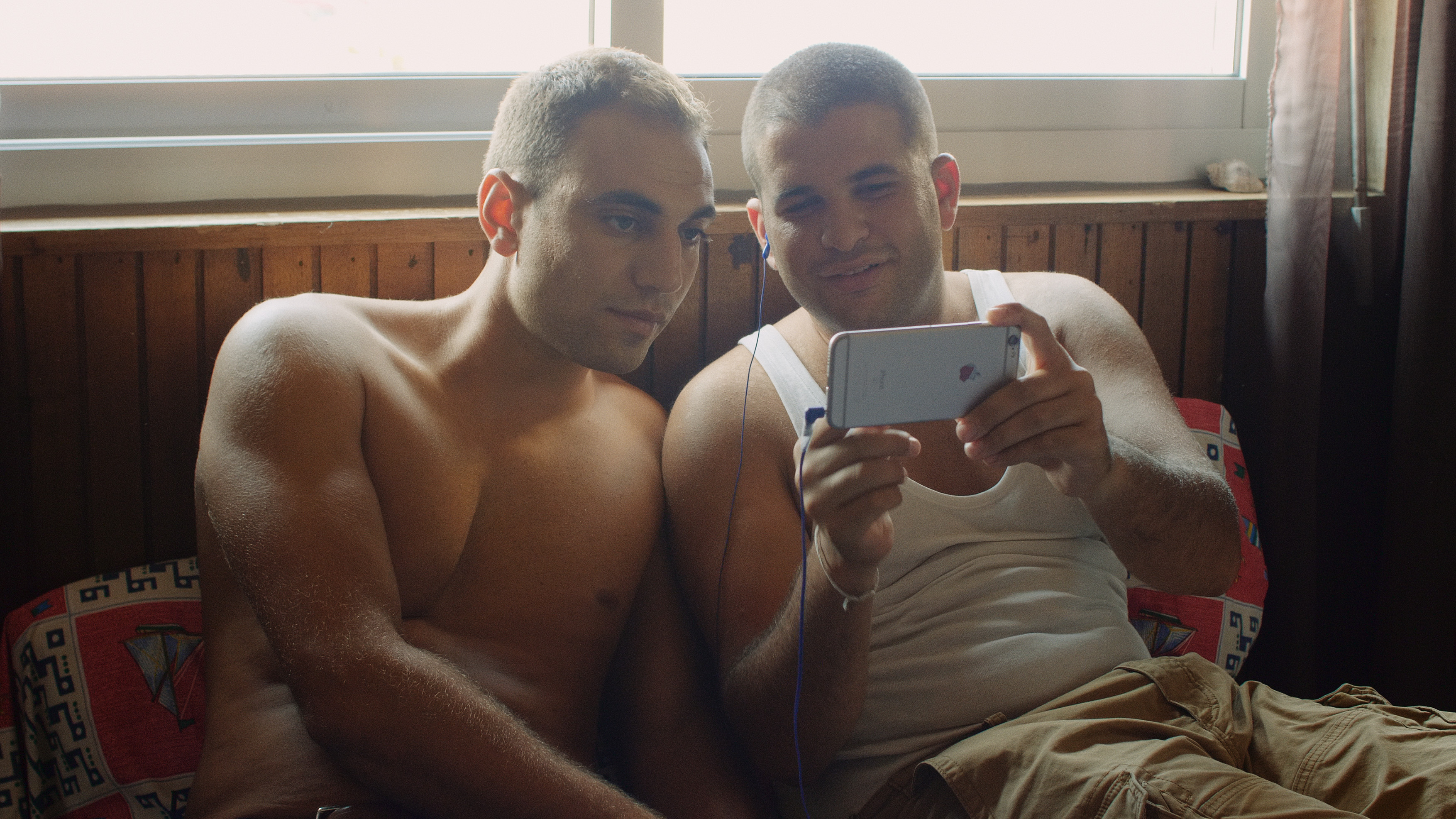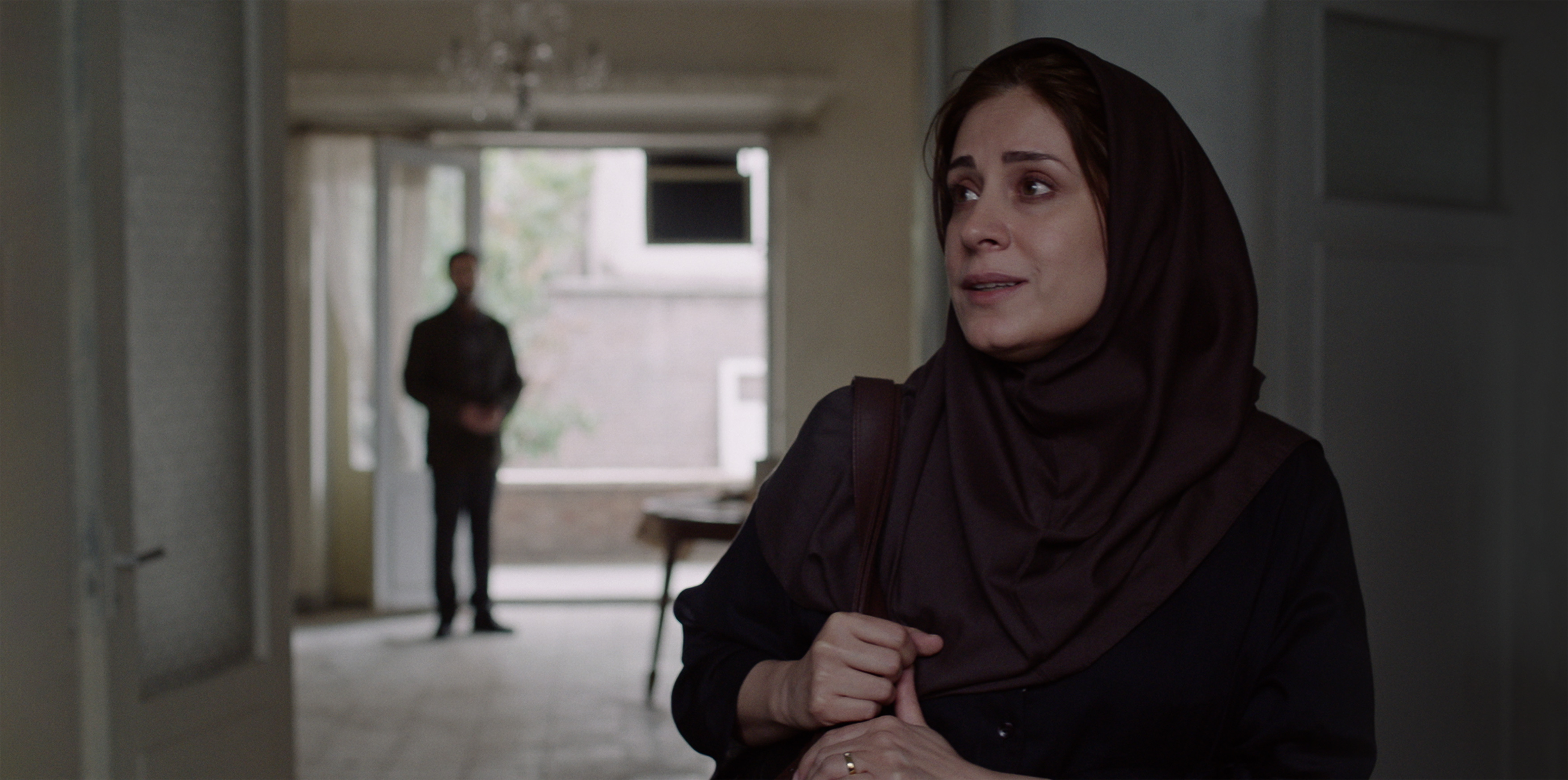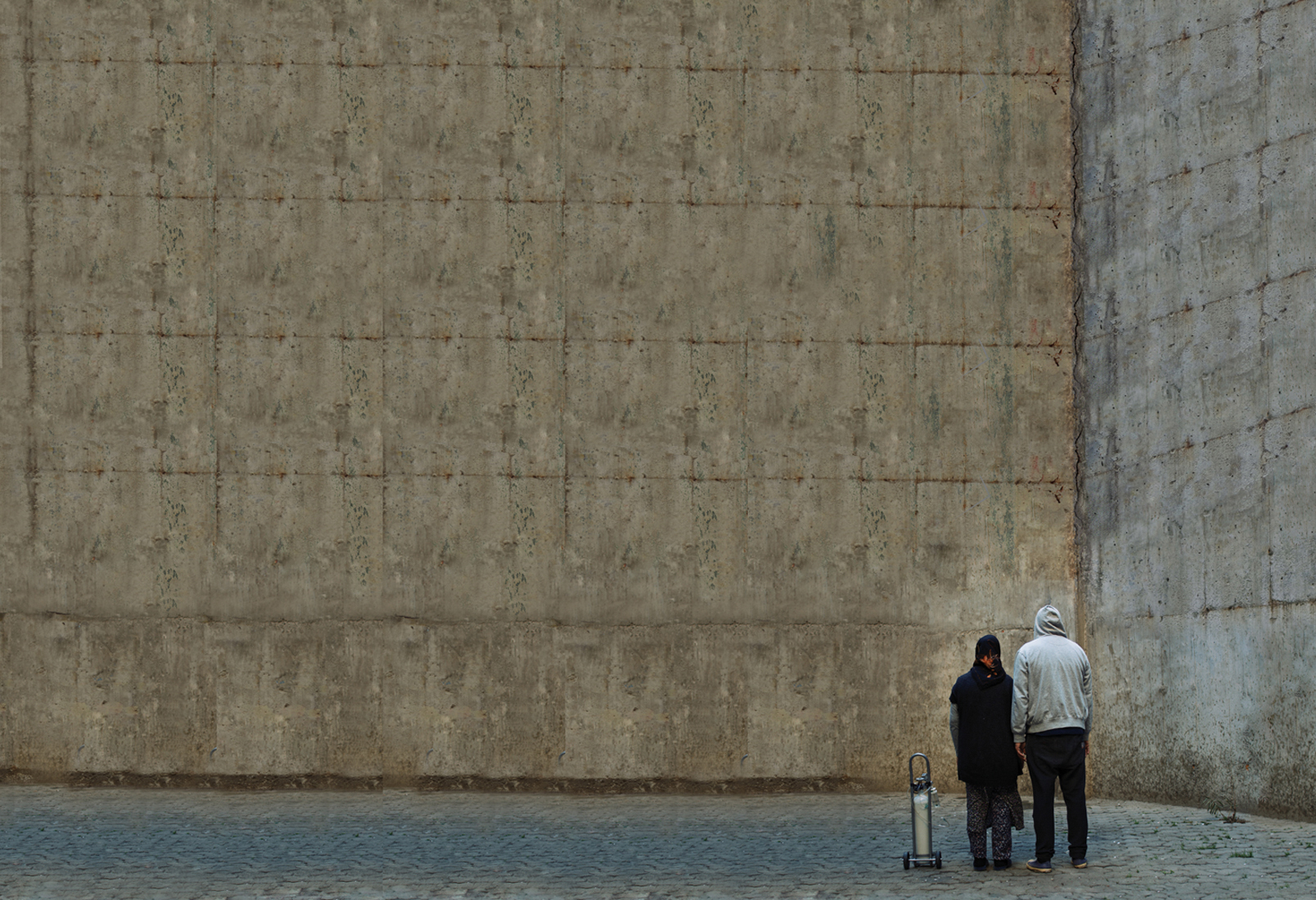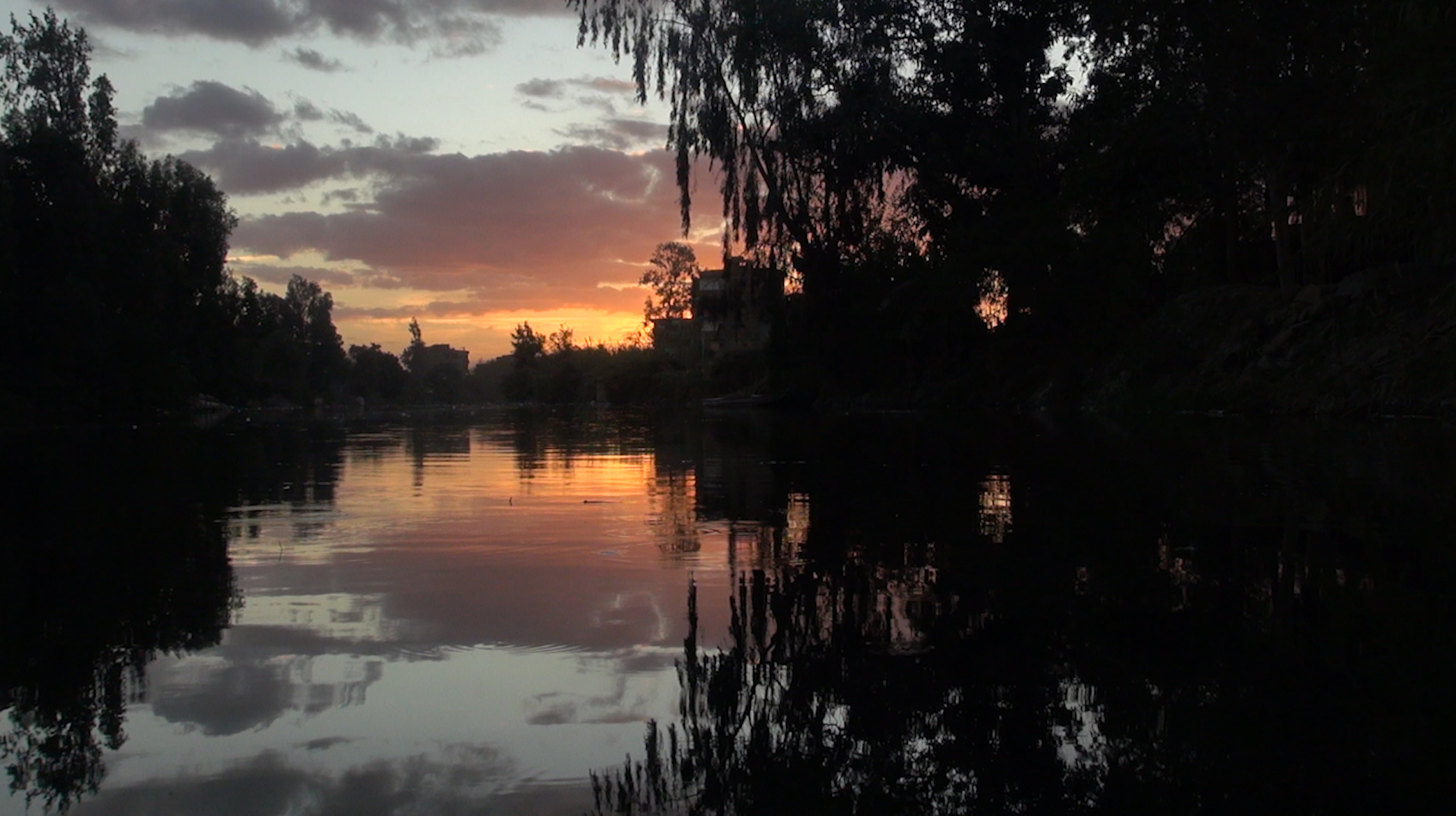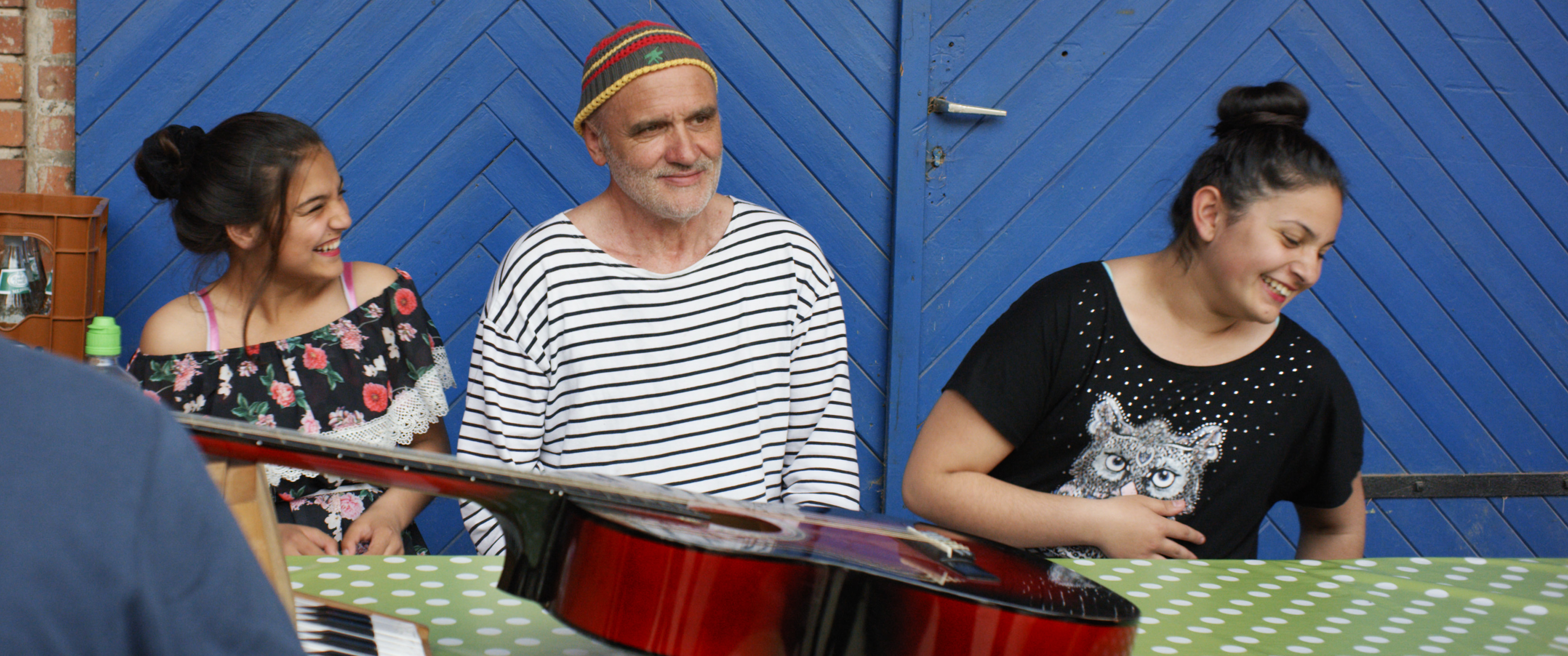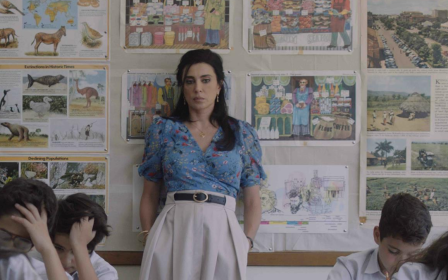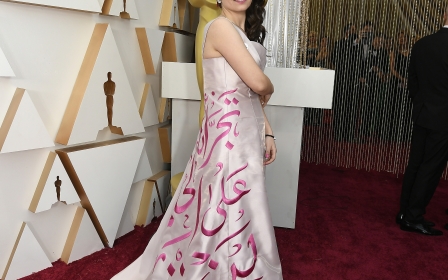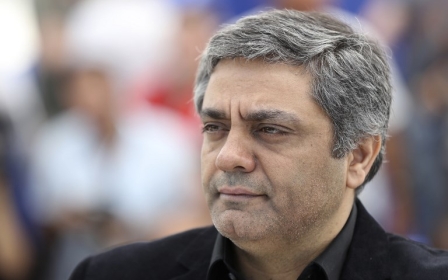How Arab films triumphed at the first online Berlinale

Regulars at the Berlin Film Festival (Berlinale) in recent years are used to a number of sights and sensations: the sinister cold shrouding the ultra-touristic Potsdamer Platz where the fest is held; an eclectic ensemble of journalists and critics pressed against one another waiting for shots of coffee; food trucks hawking expensive snacks for guileless guests and the incessant search for comfortable seating in bustling cinemas. That’s all in addition to the affable atmosphere of Berlin itself - the new European capital of art.
By comparison, the 2021 edition was a solitary affair, spent by this writer at his family house in sunny California. A humble TV screen, lit with the Berlinale logo on the upper left side, took the place of the huge cinema halls of the Berlinale Palast and Cinemax. The severity of the coronavirus in Europe over the winter made it impossible to have it any other way.
To atone for the limited selection on offer for the virtual iteration of the fest, down to five days from the usual 11, organisers have vowed to have a physical edition in June where most films will be shown to the public with the filmmakers in attendance.
On paper, this strategy sounded ominous. Major filmmakers were expected to balk from premiering their movies online, global press was likely to be limited, and sales companies were predicted to be blase about the whole affair.
Against the odds, the opposite came true. The 2021 edition - which was held between 1 March and 5 March - had no shortage of world-renowned auteurs in its main competition: Cannes French winner Celine Sciamma (the children’s fable Petite Maman); Korean Locarno and Cannes winner Hong Sangsoo (the comedy Introduction); Netflix’s Unorthodox director Maria Schrader (sci-fi romance I’m Your Man), to name a few.
The Berlinale seemed unaffected by the oomph and glamour of celebrities, and the red carpet that major festivals have become increasingly dependent on. On all fronts, the 2021 edition was a thunderous success - an artistic triumph for the event’s new director, Carlo Chatrian, and his team, who produced what is the best edition this writer has covered in 11 years.
Everything fell into place for the 71st edition. Collectively, all sections offered diverse riches - social dramas, war sagas, experimental fares, comedies and thrillers, as well as other genres, many of which were imbued with some of the most pertinent politics of the day.
The Golden Bear winner, Bad Luck Banging or Loony Porn by Romanian Radu Jude, is a biting satire on the misogyny and hypocrisy of a society still governed by toxic patriarchy. It’s also the first great Covid-era film where masks cover the faces of every single performer.
Alonso Ruizpalacios’s Netflix production A Cop Movie, winner of the Silver Berlin Bear, delves into the psyche of under fire Mexican police via a deconstructionist narrative that strikes parallels between the performances of the actors and the cops.
French/Senegalese documentarian, Alice Diop, meanwhile, draws a deeply humane panorama of ordinary French lives that doubles as an investigation into the evolving identity of French society in Nous, winner of Encounters’ best film award.
The Middle East was at the heart of this expansive political discourse. Nine productions from the region were selected for this year’s edition, the most in Berlin’s recent history. That’s not to mention other features that touched upon the realities of Arab and Turkish immigrants in Europe.
The disappointing Iranian features aside, this was also the best Middle Eastern selection Berlinale has offered this century: an eclectic, robust collection of truly remarkable works by veteran and young filmmakers adopting different styles, aesthetics, and points of views.
Memory Box
Premiering at the main competition, Memory Box topped the Middle Eastern selection, the fifth feature by acclaimed Lebanese visual artist duo Joana Hadjithomas and Khalil Joreige (I Want to See, The Lebanese Rocket Society).
The semi-autobiographical, intergenerational tale revolves around Maia, a middle-aged, Lebanese immigrant mother in Montreal, who is forced to face her long-repressed past when she receives a parcel containing 40-year-old correspondences with her long-lost friend dating back to the Civil War.
Part mother-daughter relationship, part examination of the lingering traumas of the war, Hadjithomas and Joreige’s best film to date is, most importantly, a meditation on the image as memory: why do we create images? How reliant are the memories that such images hold? How durable are they?
As absorbing as the narrative is, it takes a backseat to the ravishing images the pair conjure up of 80s Beirut: the colourful theme parks, the sidewalks, the speeding motorcycles. The Beirut of Hadjithomas and Joreige is rendered in an impressionist light rather than a realistic one, and in that sense, their film emerges as a memento mori to the lost Beirut: the lost lives, the lost innocence, and the lost memories.
Few Arab filmmakers are able to craft scenes of such pure emotive power - wistful images imbued with the pain of displacement and loss. The main setup may be the Civil War, but in the wake of last summer’s Beirut explosion, Memory Box couldn’t have felt more poignant and germane.
Miguel’s War
Lebanon’s civil war is also the backdrop for Miguel’s War, the new feature from documentarian Eliane Raheb, whose 2012 offering Sleepless Nights remains one of the most definitive and piercing accounts of the conflict.
The film is a portrait of the eponymous gay, former-Phalangist fighter and his arduous transformation from self-flagellating, closeted Catholic teenager to openly gay interpreter in Spain.
Miguel’s War is possibly the first filmic document of the largely concealed lives of gay Arabs in the 1970s - a searing character study of guilt, agonisingly suppressed carnality, and the myriad ways in which people lie to themselves and create false narratives to cope with their PTSD.
Easily the best interviewer in Arab documentary filmmaking, Raheb punctuates the voices with a combination of stop-motion animation and archival footage, as well as recreated scenes featuring performers assuming the role of Miguel at different points in his life. Commendably, she does not take a sanitised approach.
Miguel’s War, which was shown at Berlinale’s Panorama, is incredibly raw, abundant with explicit gay sexual imagery and descriptions, and weaved together with blasphemous Christian iconography, unseen in any Arab film prior.
Taking cues from Shirley Clarke’s groundbreaking classic, Portrait of Jason (1967), Raheb takes a no-holds barred approach, not flinching from asking tough questions while not compromising the dignity of her subject. This is an outstanding film - the latest addition to the Middle East’s flourishing gay cinema - that will unfortunately not be shown in the region in the foreseeable future.
As I Want
Another Arab documentary pulsating with raw emotion is Egyptian feature As I Want, a highly personal document of sexual harassment as witnessed and experienced by its Palestinian filmmaker, Samaher Alqadi.
Beginning in the early days of the 2011 revolution and concluding shortly after the military coup of 2013, Alqadi mixes the personal with the public, chronicling her journey of self-actualisation and subsequent emancipation alongside Egypt’s ongoing women movement. Stylised black and white monologues of Alqadi are intermingled with reenactments of fleeting chapters from her childhood in Palestine and footage from her home videos.
The fundamental conceit of the picture is quite simple, and one wonders why it’s taken so long for Arab filmmakers to tackle sexual harassment in documentary format. What makes As I Want such an incendiary, enraging experience is Alqadi’s confrontational approach to the subject. As vile as the individual footage of harassment is, it barely shows anything not seen before on social media. Put together in one place, however, the collated impact is exceedingly disturbing and distressing - the most unsettling viewing this writer had at the Berlinale.
As I Want - which debuted at Encounters - is a film seeping with rage; at the self-entitled men who control the public spaces beyond reproach; at the educational and religious institutions that foster contempt for women; at the negligent political establishment that allowed this plague to mushroom.
Alqadi additionally directs her ire at the Muslim Brotherhood, which held power in Egypt for a year between 2012 and 2013, for what she considers deliberate negligence over the issue.
She also shines a light on the abuses of the army and the police, and at the end of the film, the moral failure of the Sisi regime. For that alone, the film will certainly be banned in Egypt, a shame given both its historical and critical importance.
Souad
Equally affecting if more subtle is Souad, the sophomore effort from Egyptian filmmaker Ayten Amin, which was included in the Cannes lineup last year but was not shown until this month at Berlinale’s Panorama.
The titular character is a 19-year-old girl living in the rural city of Zagazig who suddenly commits suicide midway through the film, launching her younger sister into a journey to track down the mysterious object of her affection over a fateful day in Alexandria.
Fronted entirely by a cast of first-time actors and shot on location in both aforementioned cities, Souad is the most authentic, most vivid portrait of Egyptian young women in post-revolution Egypt - a misshapen wasteland of thwarted desires, unrealised dreams, and damaging fantasies.
With brilliant use of sound design and scrupulous cinematography illustrating the jarring disjunction between the distorted urbanity of Zagazig and the fading splendour of Alexandria, Souad is at once an introspective look on class disconnection, alienation and the unfulfilled escapist promises of technology.
Few other Egyptian films have ventured to present life outside Cairo as evocatively as Souad does; few films have ventured to capture the unique syntax of everyday chatter as naturally and perceptively; and few filmmakers have explored the disappointment and pain of growing up in a place with few prospects as sensitively and empathetically as Amin does in what is undoubtedly her breakthrough work.
Death of a Virgin, and the Sin of Not Living
An ambitious, if more predictable, investigation of Arab youth is showcased in Lebanese director George Peter Barbari’s debut feature, Death of a Virgin, and the Sin of Not Living. Set over the course of a day, a group of teenage boys make their way to a brothel where they’re meant to have sex for the first time. Along the way, each of the boys’ inner monologues divulges their buried fears, weaknesses and insecurities, while outlining their mostly bleak fates.
A penetrating look at the pitfalls of masculinity - the inherited toxicity, the self-destructiveness and the unbearable burden of it all - the ingenuity of Barbari’s enterprising, if not particularly original, formalism that harkens to Sarah Francis’ Birds of September (2013) is offset by an off-putting determinism that denies the characters choice, and by default, the possibility of deliverance.
Barbari mistakes fatalism for realism, stuffing his film with cliched, melodramatic treatment of sex work and victimised women that go against the grain of his thematic intentions.
Death of a Virgin is not without merits, but the picture ultimately feels torn between a fresh, challenging take on manhood and the romantically doomed masculinity of American filmmaker Nicholas Ray.
Ballad of a White Cow
Unlike 2020, Iranian movies failed to make a splash in Berlin this year. Behtash Sanaeeha and Maryam Moghaddam’s competition entry, Ballad of a White Cow, is about a woman who finds out her husband has been executed for a murder he did not commit. As her finances strain, she seeks an official apology from the authorities and a stranger barges into her life to provide her with a new lifeline.
A competent and undeniably engaging melodrama with superb acting and meticulous mise-en-scene, the well-trodden themes of guilt and retribution are nonetheless awfully familiar. Its stab against capital punishment feels like a lost chapter from last year’s much superior Golden Bear winner, There is No Evil, and its overly schematic plotting is distractingly contrived.
District Terminal
Far inferior is Bardia Yadegari and Ehsan Mirhosseini’s dystopian drama, District Terminal, a Naked Lunch rip-off about a junkie poet attempting to find a way out of the gigantic quarantine surrounding the future pollution-stricken Tehran.
Inspired by stories of banned Iranian artists, District Terminal is another proof that good intentions do not necessarily yield decent cinema. A hodgepodge of half-baked ideas about art, capitalism and nature conceived in endless dialogues recited by the insufferably self-indulgent characters, who spend the larger duration of the film dwelling in self-pity, District Terminal is essentially yet another derivative account of men-children addled with arrested development.
Its love for American culture is never explained or analysed, and what initially starts as a promising genre reworking quickly descends into the most irritating, most intellectually hollow experiment this writer was subjected to in the festival. If there’s one low point in Berlinale 2021, it’s certainly this slog of a film.
Seven Years Around the Nile Delta
A far more accomplished conceptual work is the Forum Expanded entry Seven Years Around the Nile Delta. Sharief Zohairy’s Egyptian travelogue of the 32 cities and villages comprising the Nile Delta was shot from 2012 to 2020.
Containing no characters and no narrative, Zohairy’s minimalist epic is a dizzying cacophony of sights and sounds demonstrating, with no text, the failed experiment of the industrialisation of the Delta. This is a vision of a grand industrial waste: of the archaic trains, crammed cafes, unpaved roads, dark, contaminated skies, dingy rivers, crumbling buildings, and ceaseless, soul-crushing noises. Scenes vary in length and compositions, as repeated pictorial patterns are used to underline the lack of distinction from one town to another.
At five and a half hours, Nile Delta was the longest film in the entirety of the Berlinale; it’s also one of the richest, most uncompromising works of the festival, a film that begs further analysis and contemplation.
The First 54 Years and Brother’s Keeper
Several other standout pictures from and about the region were featured in the various sidebars of the festival, including Avi Mograbi’s The First 54 Years, the latest documentary from the great Israeli satirist, that - from the point of views of ex-soldiers - charts how Israel managed to maintain its military occupation over the West Bank and Gaza Strip for more than half a century.
Another distinguished production was Ferit Karahan’s Turkish Panorama winner, Brother’s Keeper, a school drama doubling as a slow-burning, investigative thriller about the trappings of responsibility and institutional moral failings, which harkens to both the Romanian New Wave and Asghar Farhadi.
Mr Bachmann and His Class
The last film I saw in Berlinale 2021 ended my festival on the most hopeful of codas. German Maria Speth’s three-and-a-half-hour documentary, Mr Bachmann and His Class, which earned the jury prize, is a lovingly assembled record of a school class in the German city of Stadtallendorf. Composed entirely of immigrants, most of the class are of Muslim and Middle Eastern in origin and are still perfecting the German language.
Over the course of several months, Speth thoroughly dissects their relationship with their devoted eponymous, 60-something German teacher who is nearing retirement.
A multitude of issues arise in the proceedings: the difficulty of assimilation, the cultural disjointedness, the struggle of overcoming class barriers, and the great heights children must scale to form their identities. We see glimpses of the children’s lives in the outside world, but Speth confines her film primarily to the classroom - a darting board of the growing pains of immigrant kids.
Among the many notable facets of the film is how Speth communises the dilemmas of Middle Eastern children to their fellow immigrants. All immigrant kids, the film reveals, are torn between their parents’ beliefs and the new culture they must adapt in; all immigrant kids strive to transcend the socio-economic barriers and make better lives for themselves; all are struggling in figuring out what constitutes a home… and what a home means.
Mr Bachmann is a film of great emotional generosity and compassion - a film that perfectly encapsulates the range and beauty of the 71st Berlinale.
Middle East Eye propose une couverture et une analyse indépendantes et incomparables du Moyen-Orient, de l’Afrique du Nord et d’autres régions du monde. Pour en savoir plus sur la reprise de ce contenu et les frais qui s’appliquent, veuillez remplir ce formulaire [en anglais]. Pour en savoir plus sur MEE, cliquez ici [en anglais].


